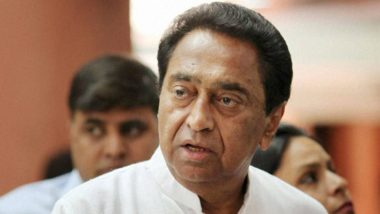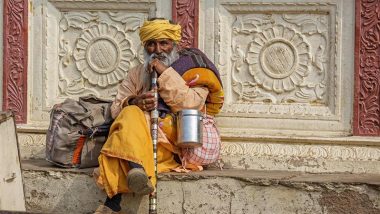Bhopal, February 5: Madhya Pradesh on Wednesday became the fifth opposition-ruled state to pass a resolution demanding Central Government to repeal the Citizenship Amendment Act (CAA) in its assembly after West Bengal, Rajasthan, Punjab and Kerala. Chief Minister Kamal Nath's Indian National Congress government is having control in the 231 (230 elected and 1 nominated)- member house. The resolution also demanded amendments in the National Population Register (NPR). West Bengal Assembly Passes Anti-CAA Resolution, Mamata Banerjee Says 'Won't Allow BJP to Divide India'.
“The Act differentiates between illegal immigrants on religious grounds. It’s against the secular spirit of the Constitution. For the first time since the Constitution was adopted, a law has been passed that differentiates between people according to their religion. This will endanger the secular and tolerant nature of the country,” reads the resolution. Rajasthan Govt's Anti-CAA Resolution Draws Flak From Centre, Union Minister Gajendra Shekhawat Calls It 'Murder of Democracy'.
“People are at loss to understand why such provisions have been included in the law. There is suspicion among the minds of the people. Protests have been held across the country. MP has seen peaceful protests and people belonging to all class have been part of them,” it adds.
“This (Citizenship Law) seems to have tampered with the basic tenets of the constitution, that is secularism. It violates Article 14 which offers right to equality for all citizens, so through the government resolution, we have urged the Centre to roll it back,” Public Relations Minister PC Sharma was quoted as saying by News18.
After the Citizenship Law was passed in Parliament, Nath had announced that it would not be implemented in Madhya Pradesh. The state government had also organised a protest march against CAA in Bhopal.
The Citizenship Law seeks to provide Indian citizenship to religious minorities (Sikh, Hindu, Jain, Buddhist, Parsi, and Christian) who had fled persecution from Islamic countries (Bangladesh, Pakistan and Afghanistan). Muslims from these countries were not given such eligibility.
(The above story first appeared on LatestLY on Feb 05, 2020 04:08 PM IST. For more news and updates on politics, world, sports, entertainment and lifestyle, log on to our website latestly.com).













 Quickly
Quickly




















